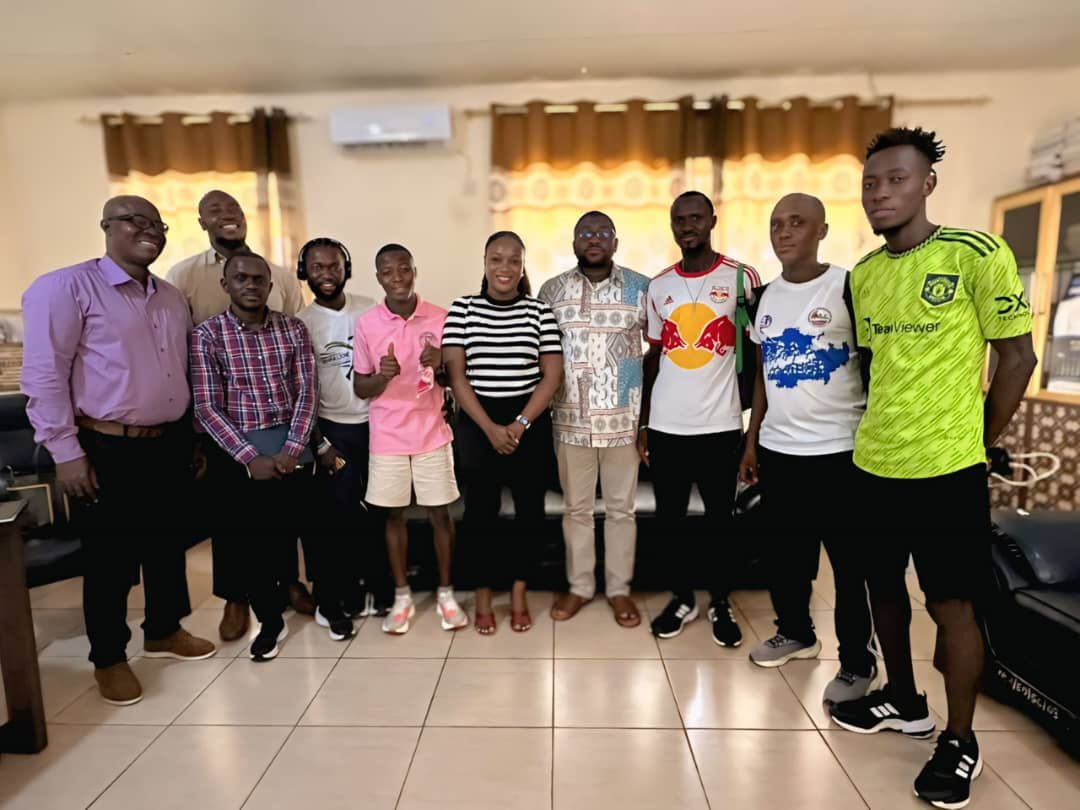
That Will Help Tackle Climate Health Risks
The Sierra Leone Healthcare Electrification Project is strengthening the climate resilience of healthcare systems, thereby helping tackle the impact of increasing temperatures.
FREETOWN, Sierra Leone, *Insert Date* – The Vice President of Sierra Leone has officially commissioned the solar power systems installed in ten major hospitals under the third phase of the Sierra Leone Healthcare Electrification Project. The monumental event took place at Connaught Hospital this morning, marking the addition of 2.3 MWp (Megawatt-peak) of installed solar capacity in the country’s healthcare system.
In his keynote statement, Hon. Dr. Mohamed Juldeh Jalloh said: “This is more than just providing electricity, it symbolises the transformation of our healthcare system. Access to reliable energy will allow our health facilities to operate more efficiently, extend their hours of service and offer a wider range of medical interventions, all crucial elements in saving lives and improving health outcomes.”
In collaboration with the Sierra Leone Ministry of Health and with support from the UK Government, Sustainable Energy for All (SEforALL) launched the Sierra Leone Healthcare Electrification Project in October 2022 with EM-ONE Energy Solutions as their key implementing partner, later joined by TetraTech and CEMMATS Group Limited. As of today, they have installed a total of 4.3 Megawatt peak (MWp) of solar power in 42 health facilities across Sierra Leone.
The British High Commissioner, H.E. Josephine Gauld, said: “Sierra Leone’s largest hospitals now have solar energy systems. The whole population of Sierra Leone is benefiting from this project.”
Phase 1 of the project led to the successful electrification of six prominent hospitals including Masanga Hospital, Princess Christian Maternity and the Old During Children’s Hospitals, with solar PV and battery systems which have been in commission since December 2023. Solar PV systems installed under Phase 2 in 25 primary healthcare facilities and Kailahun Hopsital were commissioned in March 2025.
The Minister of Health, Dr. Austin Demby, said: “This is more than an infrastructure milestone — it is a testament to us translating His Excellency Dr. Julius Maada Bio’s vision of delivering a promise. A promise of better healthcare for every Sierra Leonean. It underscores our unwavering commitment to equity, ensuring that even the most remote and difficult-to-reach communitiesbenefit from life-saving energy access and critical healthcare services.”
The Deputy Minister of Energy II, Dr. Abdul Rahim Jalloh, said: “Through initiatives like this, we are proving that the Sierra Leone energy transition is not just about technology, it is about people. It is about ensuring that no clinic, no hospital, and no citizen is left in the dark.”
The country launched its Energy Transition Plan in partnership with SEforALL, in November 2024, marking a significant step in achieving universal energy access and economic development in Sierra Leone alongside establishing the country’s environmental stewardship.
Sierra Leone is highly vulnerable to the effects of climate change. The rising temperatures, heavy rainfall, floods and landslides impact human health with an increase in diseases such as malaria, Lassa fever and cholera. Air pollution, poor water quality, food shortages and malnutrition, particularly in children, exacerbate the problems.
As a result of the Sierra Leone Healthcare Electrification Project, the transition to solar energy is significantly lowering the reliance on diesel generators in healthcare facilities and reducing greenhouse gas emissions. For instance, Phase 1 has reduced diesel generator usage by half. The project is also ensuring round-the-clock electricity access in these facilities, making the healthcare system better prepared to tackle extreme weather events. The health facilities also now remain cooler with fans and ACs, improving thermal comfort for patients, nurses and doctors alike.
The SEforALL Sierra Leone Country Manager, Ngozi Beckley-Lines, said: “It has reminded me that development is not just about delivery – it’s about connection, about building trust and about leaving a lasting legacy. Together we are making a real difference in a lot of people’s lives.”
The project partners are making sure that this difference will be long-lasting, by building the necessary capacity locally to operate and maintain the solar PV systems. They organized a three-day hands-on training this week for hospital management staff and key stakeholders, on the operation and maintenance of the solar power systems. This is a crucial step to ensure the long-term sustainability of the installed systems. The sessions were led by technical experts from EM-ONE Energy Solutions and AlphaESS, and provided participants with practical knowledge of the installed systems including both corrective and preventive maintenance procedures.
Phase 3 includes Connaught Hospital which is the main referral hospital in Sierra Leone, Rokupa Government Hospital which provides the full range of reproductive maternal and newborn healthcare for women and children, and Lakka Government Hospital, which provides specialized care for patients with tuberculosis, along with other key hospitals in the country.
The future of Sierra Leone is looking very bright with a climate-resilient health system that has an electricity supply to provide improved 24/7 medical care.
Follow this trailblazing journey on social media using the hashtags #PoweringHealthcare and #PoweringLivesSL.



